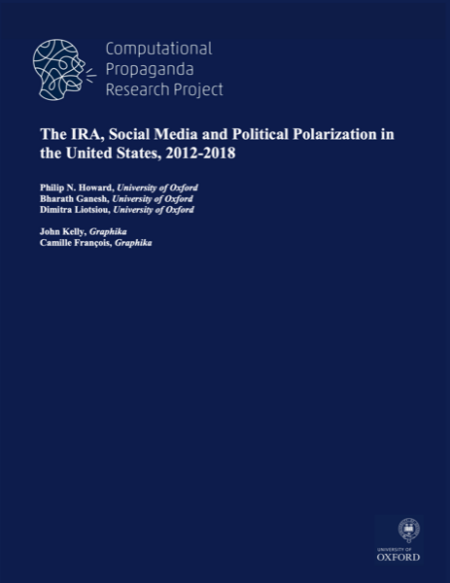Computational Propaganda
This project will focus on how bots, algorithms and other forms of automation are used by political actors in countries around the world.
Dr. Mimie Liotsiou was a postdoctoral researcher on the Computational Propaganda project.
Her research focus is on developing computational models, methods, and tools for analysing patterns of behaviour in online interactions, with a particular interest in the impact of online communications, disinformation, and propaganda. She develops and applies AI methods from the fields of causal inference and of machine learning, as well as data science and social network analysis methods, while also drawing upon findings from the social sciences. Her research interests relate to the areas of online social influence, causal inference, social network analysis, computational social science, and data science.
She received her PhD in Computer Science from the University of Southampton, UK, where she was a member of the Web and Internet Science group. Her PhD focused on causal inference for estimating the social influence of online communications on real-world outcomes, at the individual and at the collective level. Her PhD research was honoured with the Best Poster award for the poster accompanying her full-length paper (in proceedings) at the 2016 International Conference on Social Informatics in Seattle, Washington.
She holds a PhD in Computer Science and an MSc in Operational Research from the University of Southampton, and a BA (Hons) in Computer Science from the University of Cambridge.
Online social influence, causal inference, social network analysis, computational social science, data science.
This project will focus on how bots, algorithms and other forms of automation are used by political actors in countries around the world.

This project investigates contemporary trends in political communication, political polarization, artificial intelligence, and data diversity in the United States.

This programme supports research into the use of computational propaganda in developing democracies, our management of strategic relations with industry, government and civil society stakeholders, and capacity transfer to civil society groups.
I conduct my research in line with the University’s academic integrity code of practice.
By Philip N. Howard, Bharath Ganesh, Dimitra Liotsiou, John Kelly, and Camille François
The Russian Internet Research Agency launched an extended attack on the United States by using computational propaganda to misinform and polarize US voters. Using original US Senate data, this report analyses the IRA’s campaign strategy.

21 May 2019
Fewer than 4% of news sources shared on Twitter ahead of the 2019 European Parliamentary elections were ‘junk news’

1 November 2018
25% of content shared around US midterms is junk news, despite efforts by the platforms to curb the problem